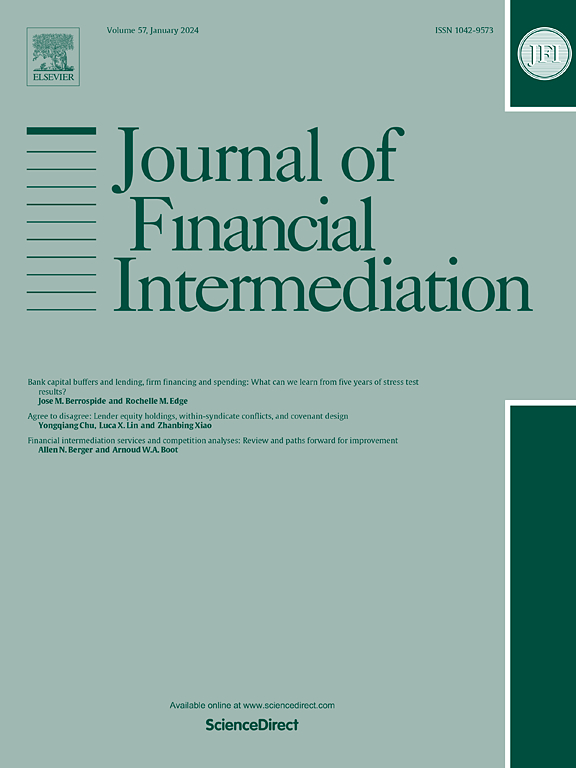碳转型风险与企业贷款证券化
IF 3.7
1区 经济学
Q2 BUSINESS, FINANCE
引用次数: 0
摘要
我们研究了银行如何通过向证券化市场上监管较少的影子银行出售给污染借款人的贷款来管理碳转型风险。利用特朗普当选作为降低碳转型风险的外生冲击,我们发现银行从事监管套利并利用棕色贷款证券化来管理其碳转型风险。当碳转型风险较高时,银行更有可能将棕色贷款证券化,但当风险降低时,银行将这些贷款保留在资产负债表上。此外,证券化使银行能够向污染借款人提供更低的利率,但不影响绿色贷款的供应。我们的发现在资本水平较低的银行、国内银行和没有表现出绿色贷款偏好的银行中更为明显。我们讨论了证券化如何削弱银行气候政策的有效性。本文章由计算机程序翻译,如有差异,请以英文原文为准。
Carbon transition risk and corporate loan securitization
We examine how banks manage carbon transition risk by selling loans given to polluting borrowers to less regulated shadow banks in securitization markets. Exploiting the election of Donald Trump as an exogenous shock that reduces carbon transition risk, we find that banks engage in regulatory arbitrage and use brown loan securitization to manage their exposure to carbon transition risk. Banks are more likely to securitize brown loans when carbon transition risk is high but keep these loans on their balance sheets when the risk is reduced. In addition, securitization enables banks to offer lower interest rates to polluting borrowers but does not affect the supply of green loans. Our findings are more pronounced among banks with low levels of capitalization, domestic banks, and banks that do not display green lending preferences. We discuss how securitization can weaken the effectiveness of bank climate policies.
求助全文
通过发布文献求助,成功后即可免费获取论文全文。
去求助
来源期刊

Journal of Financial Intermediation
BUSINESS, FINANCE-
CiteScore
8.60
自引率
7.70%
发文量
45
期刊介绍:
The Journal of Financial Intermediation seeks to publish research in the broad areas of financial intermediation, financial market structure, corporate finance, risk management, and valuation.
 求助内容:
求助内容: 应助结果提醒方式:
应助结果提醒方式:


